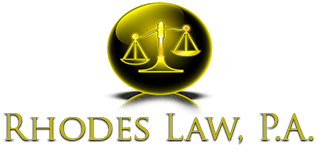Is It Neccessary to Have Both a Will and Trust?

If you have just a will and no trust, your estate can still be passed on according to your wishes—but there are some limitations and consequences you should understand:
What Happens with Just a Will:
- Probate Is Required
A will must go through probate, which is a court-supervised process of validating your will, paying debts, and distributing assets. Probate can:
- Take months or even years.
- Be expensive (court fees, attorney fees).
- Be public (anyone can view the will and estate details).
2. Court Control Over Distribution
The probate court oversees how and when your assets are distributed. This means less privacy and flexibility.
3. No Ongoing Asset Management
A will only takes effect
after your death. It doesn’t help manage your assets if you become incapacitated. A trust, on the
other hand, can provide for you during incapacity without needing a court-appointed guardian or conservator.
4. Less Control Over Complex Distributions
If you want to delay inheritance (e.g., give children money at age 25 instead of 18) or provide ongoing support (e.g.,
for a special needs child), a trust is better suited. A will can't manage distributions over time—it just transfers
ownership.
5. Tax and Asset Protection Limitations
A will doesn't offer any real protection against estate taxes, creditors, or lawsuits. Certain types of trusts can.
When a Will Might Be Enough:
- You have a very simple estate.
- Your total assets are below your state’s probate threshold.
- You have no minor children and no complex distribution needs.
- You’re okay with the probate process and your wishes are relatively straightforward.
So, yes, even if you have a trust, you should also have a will. A trust and a will serve different but complementary purposes in estate planning. Think of the trust as the main tool for managing and distributing your assets, but the will as a safety net to ensure everything is covered. Rhodes Law, P.A. offers a comprehensive range of professional estate planning services that include wills, trusts, durable powers of attorney, designation of healthcare surrogates, living wills and more. Give our helpful estate planning professionals a call today at (321) 610-4542 to book a free consultation!
You might also like




